Feedback Leads To Informed Decisions
We’ve all been there. Someone asks us for feedback and we wonder, “How much feedback do they want?” Do they want only the positive comments? Do they really want to hear what they should work on? This week I ran into a situation that made me pause and realize that when I don’t provide feedback on both what’s working and what’s not, I prevent the other person from making an informed decision. For me that framework was a gamechanger when it comes to providing feedback.
The Situation
The situation I ran into that lead to this realization was based on a recent trip where I had to make it to my destination by my 2:45 p.m. speaking engagement. My plane from Madison to O’Hare was running behind. Behind enough I doubted I’d make my Chicago connection. Enough that I asked the gate agent to help me figure out if my best option was to hop in the car and drive to my destination, while I still had time, or take a calculated risk that I’d meet my connection in Chicago.
The attendant assured me the hour planned for the flight to Chicago was only a 28-minute flight, and if we loaded in the next 10 minutes, I’d have nearly a half-hour to make my connection. The Madison flight arrived, we loaded, and we sat on the tarmac, eating 15 minutes of my layover in Chicago.
When we landed, I had 10 minutes to race between terminals F and C, so I stopped before I started my sprint and asked the Chicago gate agent if I would actually be able to make the transfer. He assured me, “They know you’re coming.” So I ran through the airport, arrive at my gate 1 minute after the gate was to close to find the plane had left early.
Needless to say, I was frustrated and felt misguided. I made the decisions, I own my actions, but what if the feedback from those two flight attendants had focused on me and my goals? Would our conversation have been different? I’m guessing so.
Focus On Others’ Needs
When we focus on others’ needs, we change how we approach feedback. We look to help them grow, develop, and maybe decide between flying and driving. Had either agent focused on me, they would have shared all their thoughts and feedback. Such as, “The flight landing in Madison will take 15 minutes to load, and while that leaves you with time, there may be other delays in the process”.
In turn when we focus on their needs, the person receiving feedback gets to make an informed choice about what to do next. When you provide feedback to someone not meeting their sales goals and show how that impacts their opportunities, the other person has the opportunity to make an informed decision to stay and work hard or to find a better fitting job.
This week I will be giving feedback to a few folks who may not like what I have to say. However, based on my own experience, I can offer them feedback focused on their needs, which in turn, allows them to make an informed decision. That’s how I can serve them this week.
How will you serve your team, your family, your friends this week?
Keynote speaker, trainer, and consultant, Sarah Gibson, enables organizations to have conversations that matter so they can create a culture where people thrive. To buy her book or inquire about her speaking programs, please visit www.sarahjgibson.com.



